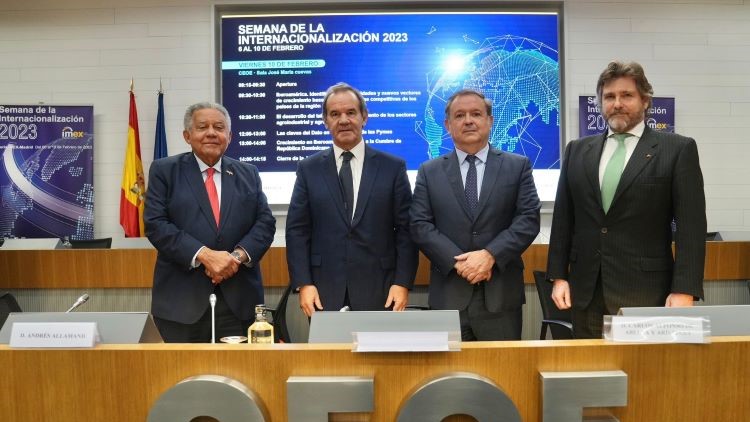The Diplomat
The Ibero-American Secretary General (SEGIB), Andrés Allamand, stressed on Friday the need to boost growth in Ibero-America based on “legal certainty” and that it should be “politically inclusive, socially viable and environmentally sustainable”.
Andrés Allamand made these statements during his participation in the XXI edition of IMEX-Madrid, Internationalization Week 2023, organized by the CEOE and which brought together authorities, representatives of institutions and business organizations and experts at a global level throughout the week.
According to SEGIB, growth problems in Ibero-America are not only due to poor economic management of the countries, but to problems related to political governance and institutional and interpersonal trust. “Legal certainty is needed,” he warned. For this reason, and to address these obstacles and overcome the “endemic problem in the region: poverty, closely linked to inequality”, the Ibero-American countries should achieve “politically inclusive” growth, which includes agreements at the political, economic and social levels on how to move forward in public policy. Likewise, he continued, it should be a “socially viable” and “environmentally sustainable” growth that contemplates a significant redistribution that helps to curb inequality.
On the other hand, and in order to put an end to the region’s productivity problems and boost the internationalization process, Allamand warned that a significant package of investment incentives is required. In his opinion, we must know how to take advantage of opportunities, and one of them is digitalization, to change the way “in which we produce, in which we connect and interact”.
At a table moderated by the general director of CEOE International, Narciso Casado, the importance of promoting and strengthening intra-regional trade in Latin America was highlighted, taking advantage of benefits such as nearshoring, as well as all the work being done in preparation for the next Ibero-American Summit, which, together with the previous Business Meeting, are “undoubtedly the best tools for regional integration that exist”.
For his part, the ambassador on special mission for the Ibero-American Summits and Ibero-American Spaces, Carlos Alfonso Abella y de Arístegui, pointed out Ibero-America and the European Union as the two axes of Spanish foreign policy, a position that “allows us to act as a link between these two great spheres, also propitiated by common political, institutional, economic and social structures”, and stressed the importance of maintaining and caring for these ties in a complex international context such as the current one.
Likewise, the ambassador of the Dominican Republic in Spain, Juan Bolivar (whose country is hosting this year’s Ibero-American Summit), warned that, in recent years, Chinese investment has advanced in the south of Latin America much more than European investment, so it is necessary to “strengthen our relationship as much as possible”. He also stressed the importance of the next Summit between Latin America and the EU to “form a strong bloc, not only commercial, to stabilize the world and democracy”.





